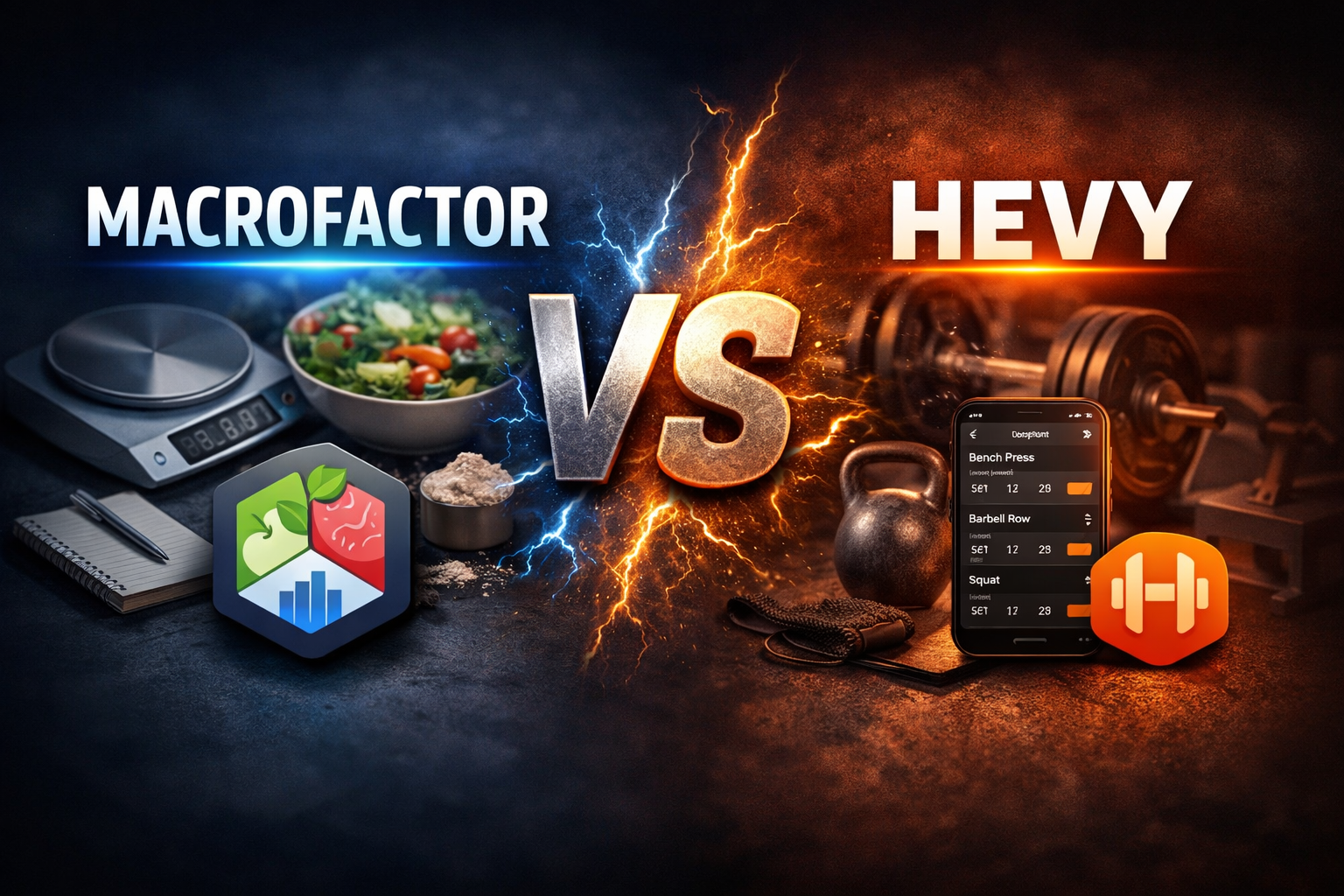
You're Eating Poison
It's time to rethink what's on your plate.
In the modern world of convenience and fast-paced living, our diets have undergone a dramatic transformation—and not for the better. Walk down any supermarket aisle, and you'll be bombarded with colorful packages and enticing claims, but many of these so-called "foods" are nutritional landmines.
This isn't just advice for bodybuilders tuning their macros or health gurus on a 30-day cleanse. This is fundamental information for everyone who eats. The daily choices we make at the grocery store and in our kitchens have a cumulative effect on our long-term health, energy levels, and risk for chronic disease.
Based on nutritional science and a commitment to well-being, here are 12 foods that everyone should strive to eliminate from their diet.
1. Sugar-Sweetened Beverages (Sodas, Sweetened Juices)
This is public enemy number one. These drinks are liquid candy, delivering a massive dose of high-fructose corn syrup or sugar with zero nutritional value. They spike blood sugar, contribute to insulin resistance, are strongly linked to obesity, and provide empty calories that don't trigger feelings of fullness. Diet sodas aren't off the hook either, as artificial sweeteners can disrupt gut bacteria and may still promote sugar cravings.
2. Artificial Trans Fats (Partially Hydrogenated Oils)
Found in many margarines, shortenings, fried foods, and packaged baked goods (like cookies and crackers), artificial trans fats are created through an industrial process that adds hydrogen to liquid vegetable oils. There is no safe level of consumption. They significantly raise your bad (LDL) cholesterol, lower your good (HDL) cholesterol, and increase your risk of heart disease, stroke, and type 2 diabetes. Check labels meticulously—if it says "partially hydrogenated," avoid it.
3. Highly Processed Meats
This category includes hot dogs, sausages, bacon, salami, and most deli meats. To extend shelf life and enhance color and flavor, these meats are smoked, cured, salted, or loaded with chemical preservatives like nitrates and nitrites. Numerous studies have linked high consumption of processed meats to an increased risk of colon cancer, heart disease, and type 2 diabetes.
One of the main health concerns comes from the additives used during processing. Nitrates and nitrites, for example, can form carcinogenic compounds called nitrosamines when exposed to high heat during cooking. These compounds have been directly tied to DNA damage and the development of cancer cells. Additionally, processed meats are often very high in sodium, which contributes to elevated blood pressure and increases the strain on the cardiovascular system.
The problem isn’t just the additives—processing methods themselves alter the nutritional profile of meat. Compared to fresh, unprocessed cuts, processed meats often contain more saturated fat, less protein, and fewer beneficial nutrients. Smoking and curing can also introduce harmful compounds like polycyclic aromatic hydrocarbons (PAHs) and heterocyclic amines (HCAs), both of which are associated with cancer risk.

From a public health perspective, the evidence is strong enough that the World Health Organization (WHO) classifies processed meat as a Group 1 carcinogen—the same category as tobacco and asbestos, though that doesn’t mean the risks are equal in magnitude. What it does mean is that there is sufficient evidence to conclude that processed meat consumption causes cancer in humans, particularly colorectal cancer.
Despite these risks, processed meats remain a staple in many diets due to convenience, affordability, and taste. This makes moderation essential. Replacing deli meats or bacon with leaner protein sources—such as grilled chicken, fish, beans, or legumes—can reduce health risks while still providing the nutrients the body needs. When processed meats are consumed, choosing versions labeled “nitrate-free” or “uncured” may lower (though not eliminate) the potential dangers.
Ultimately, the concern around processed meats highlights the broader connection between food processing and human health. While occasional consumption is unlikely to cause harm, regular reliance on these products can have long-term consequences. Opting for fresh, whole-food protein sources whenever possible is one of the most effective steps toward a healthier diet.
4. "Diet" and "Low-Fat" Products
When fat is removed from a food to make it "low-fat," it often becomes a bland, unappealing mess. To fix this, manufacturers pile in sugar, artificial sweeteners, and sodium to make it palatable. You're often better off eating a small amount of the full-fat, whole version (like natural yogurt) than a large portion of a chemically-altered "diet" food that spikes your insulin.
5. Refined White Flour Products
White bread, white pasta, and many pastries are made from flour that has been stripped of its bran and germ, removing nearly all its fiber, vitamins, and minerals. What remains is a simple carbohydrate that your body processes almost identically to sugar. It causes rapid spikes in blood sugar and insulin and offers little satiety or nutritional value. Always opt for 100% whole grain alternatives.
6. Most Industrial Vegetable Oils
Oils like soybean, corn, canola, and sunflower oil are high in omega-6 fatty acids. While our bodies need some omega-6s, the modern diet is dangerously oversaturated with them, creating massive inflammation when not balanced with anti-inflammatory omega-3s. This chronic inflammation is a root driver of nearly every major disease. Choose healthier fats like olive oil, avocado oil, or coconut oil instead.
7. Artificial Sweeteners (Aspartame, Sucralose, Saccharin)
While marketed as a healthy alternative to sugar, artificial sweeteners are chemicals that trick your taste buds and your brain. Studies suggest they can disrupt the gut microbiome, potentially leading to glucose intolerance. They also do nothing to curb your sugar addiction; in fact, they often intensify sugar cravings and your preference for overly sweet foods.
8. Agave Nectar
Marketed as a "natural" and "healthy" alternative to sugar, agave nectar is one of the most misleading health foods on the market. It is highly processed and contains an extremely high concentration of fructose (often higher than high-fructose corn syrup). Excessive fructose is processed directly by the liver, where it is converted into fat and can drive fatty liver disease and insulin resistance.
9. Microwave Popcorn
The problem isn't the popcorn itself (which is a whole grain), but the bag it comes in. Many microwave popcorn bags are lined with perfluorooctanoic acid (PFOA), a chemical linked to thyroid disorders and cancer. Furthermore, the fake butter flavoring often contains diacetyl, a compound linked to lung damage. Pop your own kernels on the stove or in an air popper.
10. Conventional (Non-Organic) Produce from the "Dirty Dozen"
Each year, the Environmental Working Group publishes a list of fruits and vegetables that contain the highest levels of pesticide residues. Consistently at the top are strawberries, spinach, kale, apples, grapes, and peaches. Pesticide exposure is linked to a host of health issues. Whenever possible, buy these items organic to avoid ingesting these harmful chemicals.
11. Most Commercial Salad Dressings
A healthy salad can be instantly transformed into a calorie and chemical bomb with the wrong dressing. Bottled dressings are typically loaded with sugar, unhealthy vegetable oils (like soybean oil), artificial flavors, and preservatives. Your best bet is to make your own with simple ingredients: extra virgin olive oil, vinegar (apple cider or balsamic), lemon juice, and herbs.
12. Factory-Farmed Meats
The way an animal is raised directly impacts the nutritional quality of its meat. Factory-farmed animals are often kept in poor conditions, fed an unnatural diet of grains (and antibiotics to prevent the disease that diet causes), and given growth hormones. This results in meat that is higher in inflammatory fats and lower in beneficial omega-3s compared to its grass-fed, pasture-raised counterparts.
Beyond nutrition, factory farming raises serious concerns about animal welfare. Animals are frequently confined to cramped spaces where they can barely move, denied access to fresh air or natural light. These conditions create stress, weaken immune systems, and promote the rapid spread of disease—hence the routine use of antibiotics, which has ripple effects on human health by contributing to antibiotic resistance.
Environmental consequences are also significant. Large-scale industrial farms generate massive amounts of waste that can pollute waterways, damage soil, and release greenhouse gases like methane into the atmosphere. The reliance on monoculture grain production to feed these animals further depletes biodiversity and requires heavy use of chemical fertilizers and pesticides.
From a public health standpoint, factory farming creates risks that extend well beyond the farms themselves. The overuse of antibiotics in livestock contributes to the rise of drug-resistant bacteria, sometimes called “superbugs,” which pose a serious threat to human medicine. Outbreaks of foodborne illness are also more common in systems where thousands of animals are processed in the same facility.
In contrast, pasture-raised and regenerative farming practices emphasize animal welfare, environmental stewardship, and food quality. Animals are allowed to graze naturally, improving soil health and biodiversity while producing meat richer in nutrients like omega-3s and antioxidants. While more resource-intensive on a small scale, these methods can play an important role in building a more sustainable and ethical food system.
Ultimately, factory farming is not just about how animals are raised—it’s about the interconnected impact on human health, the environment, and the ethical treatment of living beings. By understanding these connections, consumers can make more informed choices about the food they purchase and the systems they support.
The Bottom Line: Eat Real Food
The common thread among all these foods is that they are highly processed. They are far removed from their natural, whole-food state and have been altered in a lab or factory to be hyper-palatable and have a long shelf life—not to be nutritious.
The simplest and most powerful nutritional advice will always be: eat real food. Focus your diet on whole, single-ingredient foods like vegetables, fruits, nuts, seeds, healthy fats, and responsibly raised proteins. By cutting out these 12 processed offenders, you take a massive step toward taking control of your health and well-being.
Disclaimer: This article is for informational purposes only and is not intended as medical advice. Always consult with a healthcare professional or registered dietitian before making significant changes to your diet.



